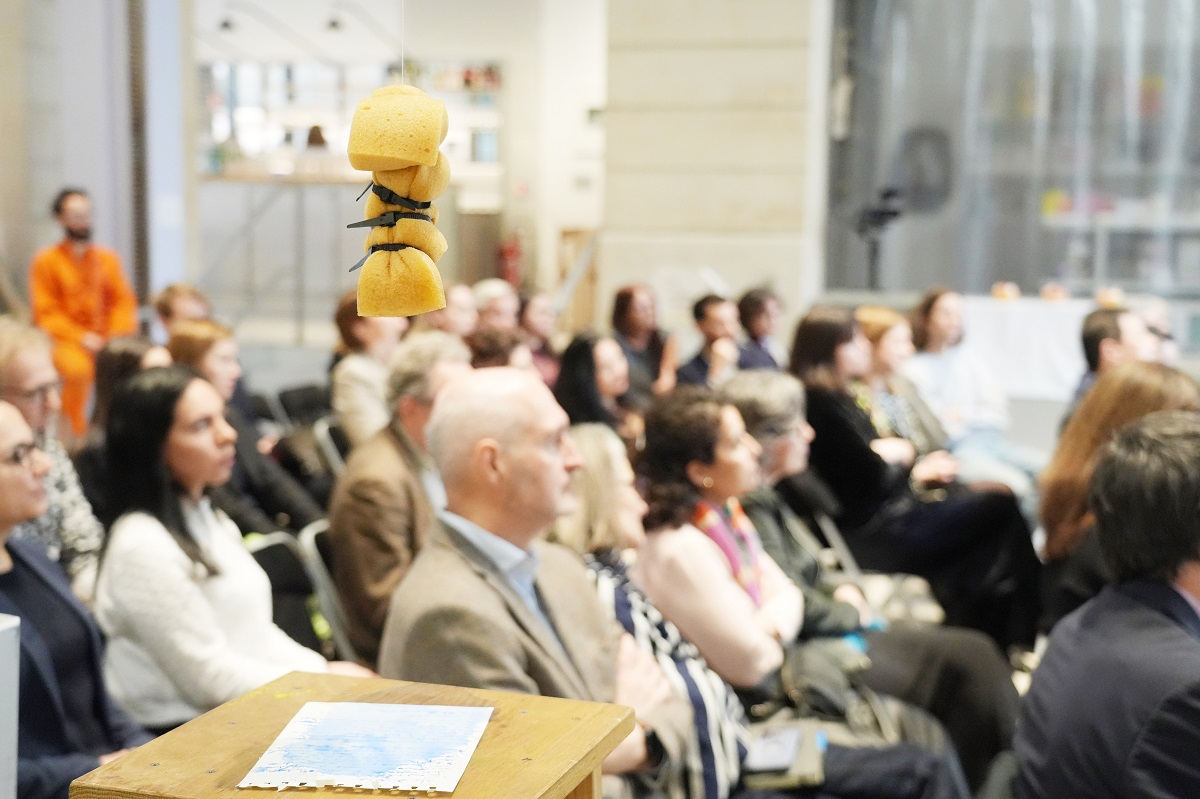A Big Number Worth Celebrating

Skills Minister Robert Halfon MP shares his thoughts on National Apprenticeship Week 2024.
This National Apprenticeship Week, I want to reflect on what government, businesses and educators have achieved together in the remarkable growth of high quality apprenticeships. For over a decade, this government has been striving to make high quality the feature that distinguishes these qualifications, whatever profession they lead to.
There were fewer than half a million people doing apprenticeships in 2009/10. Those training programmes had no requirement to last at least a year, and no minimum guided learning hours. Last year over 750,000 people participated in apprenticeships, training to the more rigorous standards we introduced from 2014. These were designed in partnership with many different industries, to restore the rigour and respect that apprenticeships had lost. There are now over 690 high quality standards available, for roles ranging from structural engineering to software development. Crucially, each one now delivers the skills that those industries are seeking in their new staff.
This academic year we’ve already seen 130,830 apprenticeship starts (August-October 2023), up 7% on the same period the previous year. Among those, the number of young people under 25 starting an apprenticeship is up by 6%, at 78,960 starts. And the number of achievements is up 22% so far this academic year, with 37,400 people passing their apprenticeship.
This is obviously great for those directly involved – the businesses nurturing talent that will give them a competitive edge, and the apprentices climbing the Ladder of Opportunity to higher earning power. But the legacy of this government’s skills revolution will also be long term economic growth, with high quality apprenticeships creating a pipeline of talent that boosts business success.
Social justice incl. Care-leavers, Disabled Apps and the Teacher Degree Apprenticeship
Another reason to celebrate the growth of high quality apprenticeships is the wider distribution of valuable opportunities. When I’m on the road this National Apprenticeship Week, going from West to East, the apprentices I most look forward to meeting are those whose apprenticeship has made the biggest difference. People (young and old) who did not do well at school, were held back by their circumstances – or just never thought they were the sort of person to land a job at Airbus, or graduate from Exeter University with a degree apprenticeship. That the apprenticeship programme can facilitate these outcomes is real social justice in action. These opportunities need to be available everywhere, particularly to people unlikely to apply for them unless encouraged to by their school or college.
I’m keen that we present apprenticeships to disadvantaged candidates as an attractive, supported option. That includes young people who have been brought-up in care, and haven’t enjoyed a stable family background to guide decisions about their future. That’s why in August we raised the bursary for care-leavers starting an apprenticeship to £3,000. These young people can now begin their career confident they can cover the living costs usually met by family. This is on top of the £1,000 available to both the employer and training provider who take on a care-experienced apprentice – making a total of £5,000 of additional funding per apprentice to boost outcomes for this group.
I also want to explore how we can help disadvantaged apprentices to progress and complete their training. That’s why we have begun a pilot scheme to help training providers offer quality mentoring to disabled people embarking on an apprenticeship. This will give participants tailored support from someone who understands the programme, as well as their individual needs and circumstances.
Developing apprenticeships that widen access to traditional graduate professions demonstrates their further potential for social justice. That’s why the Secretary of State launched the Teacher Degree Apprenticeship at the start of National Apprenticeship Week, offering a brand new route into teaching. It will allow non-graduates to gain a degree and qualified teacher status whilst continuing to earn. Candidates could include staff already working in schools, such as teaching assistants, or people who cannot take a career break to qualify via the usual university route. The Teacher Degree Apprenticeship will also benefit schools seeking highly skilled teachers, especially in shortage subjects. The initial pilot will support schools to fund the apprenticeship in maths teaching, with the first cohort of 150 starting their training next year.
The Ronseal Levy
Maintaining high quality apprenticeships required this government to put the programme’s funding on a firm footing. We have doubled apprenticeships spend in cash terms since 2010 – from £1.2 billion in 2010-11, to £2.5 billion in 2022-23. Since 2017 the Apprenticeship Levy has contributed significantly to this, as well as helping to embed a culture of learning and training within UK employers.
The National Trust has gone from employing just 8 apprentices in 2016, to over 170 in 2023. Their Apprenticeship Manager, Caroline Noon, is clear that “this would not have happened without the introduction of the levy to drive the change and… grow the offer.”
I think of the Apprenticeship Levy as the Ronseal Levy – it does what it says on the tin. It’s a dedicated fund for allowing employers to take-on more apprentices and invest in the high quality training needed for a skilled workforce. It has taken a long time to achieve ringfenced funding for high quality apprenticeships, which is why I reject recent calls to diversify how this money can be spent. Allowing companies to use the Levy for other skills training would significantly reduce the number of apprenticeship opportunities. For example, using half of the fund in this way could have resulted in around 60% fewer apprentice starts last academic year.
Conclusion
Apprenticeships have come a long way since 2010. While there is still more to do, National Apprenticeship Week is the perfect time to celebrate the daily successes that are the tangible results of a well-funded, high quality programme. I know that this week I will meet more inspiring apprentices, college staff, training providers and businesses – who will confirm for me that the hard graft of undertaking these reforms was all worthwhile.
By Robert Halfon, Minister for Skills, Apprenticeships and Higher Education
FE News on the go
Welcome to FE News on the Go, the podcast that delivers exclusive articles from the world of further education straight to your ears.
We are experimenting with Artificial Intelligence to make our exclusive articles even more accessible while also automating the process for our team of project managers.
In each episode, our thought leaders and sector influencers will delve into the most pressing issues facing the FE.












Responses